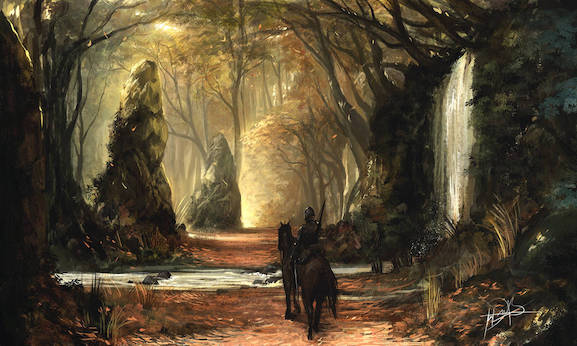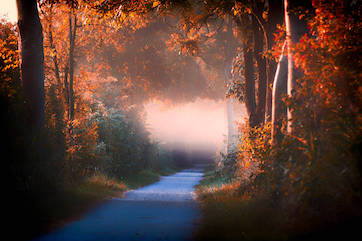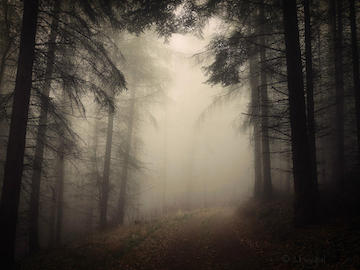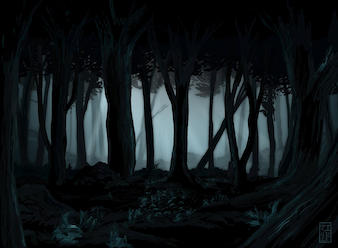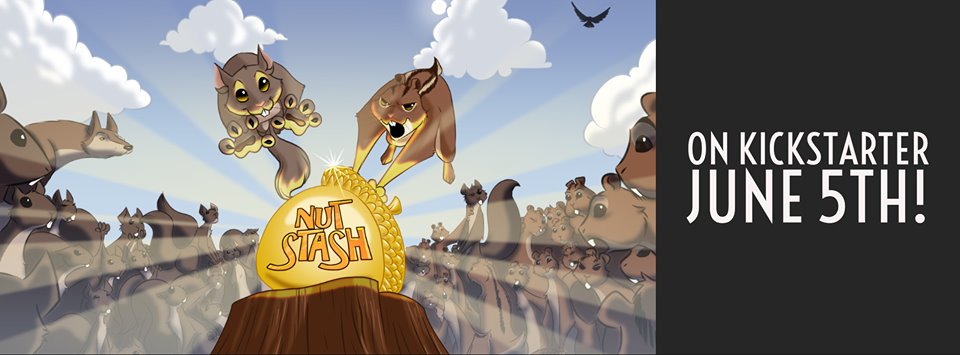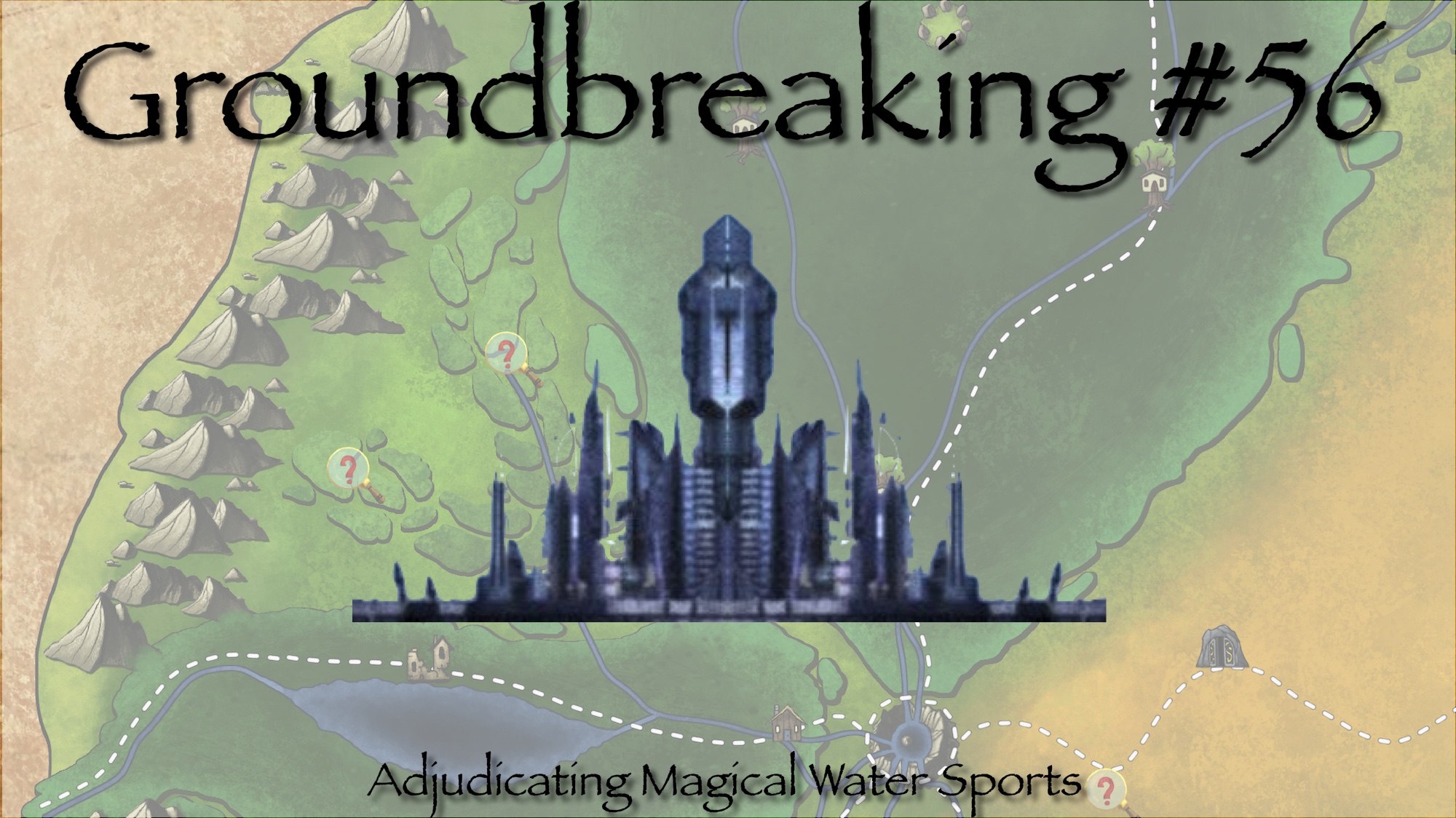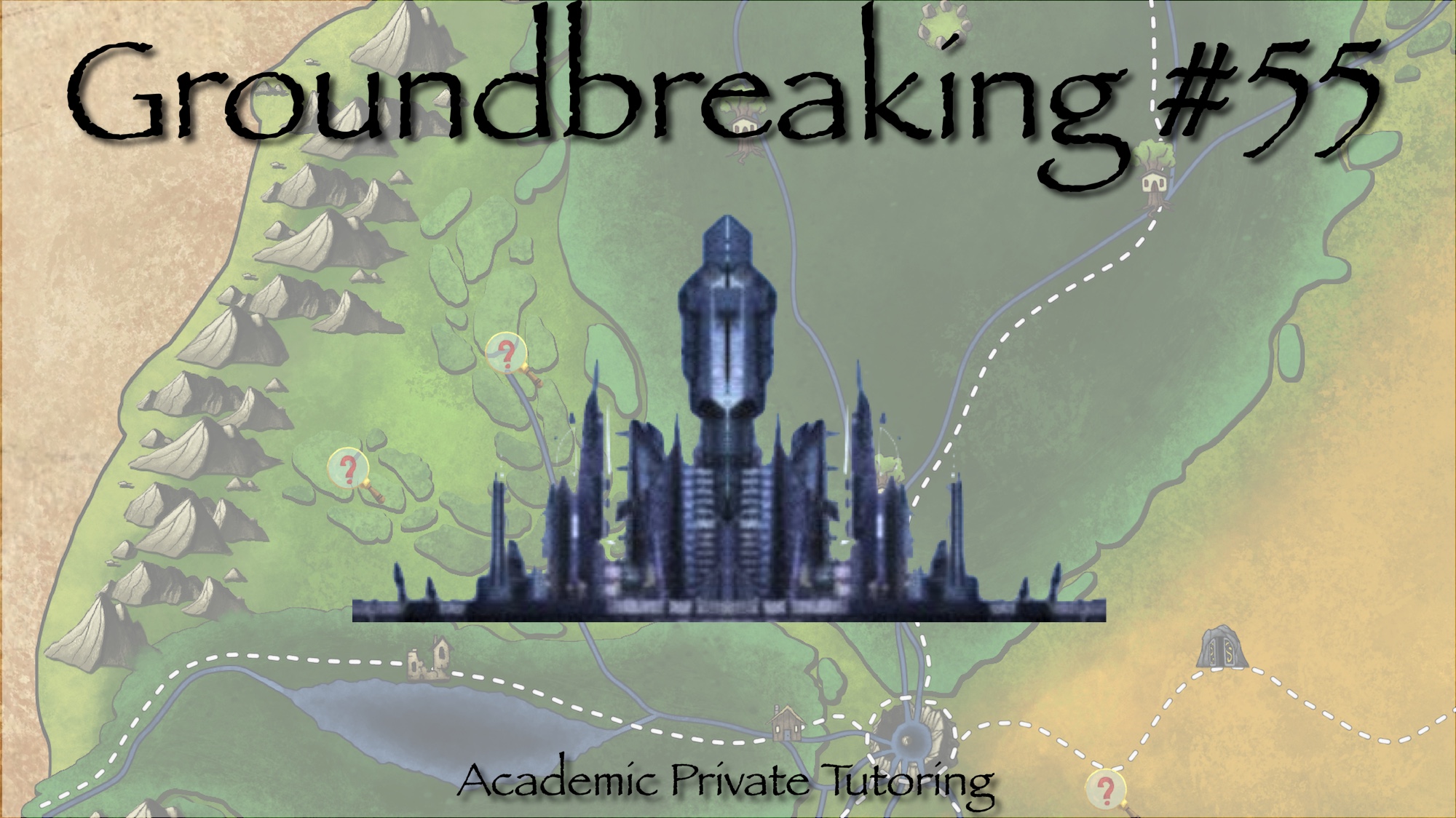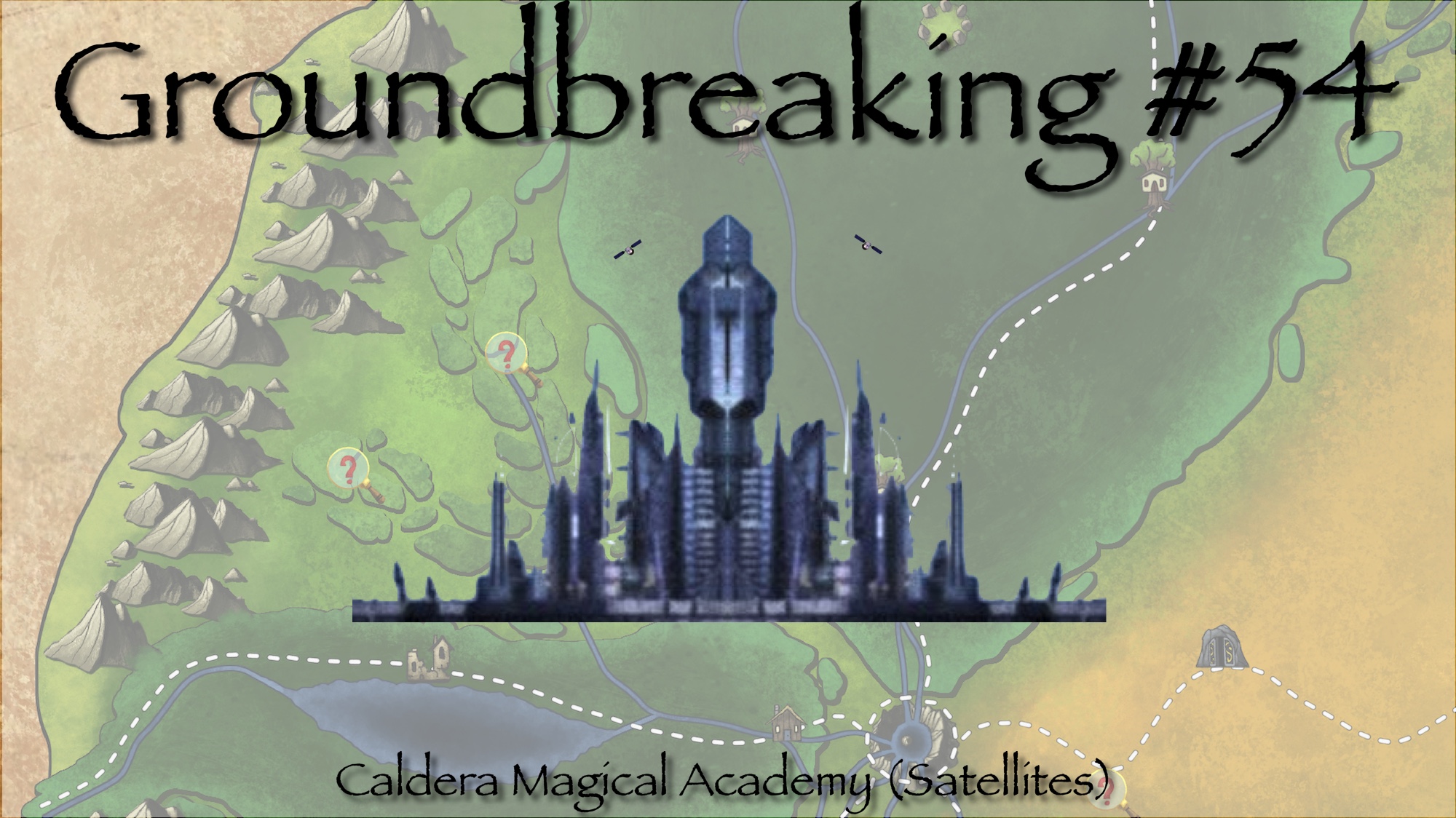As your caravan inches closer to the forest, its canopy looms darker by the minute. As it rises ever taller you instinctively shrink into your cloak for protection as the open plain behind you comes to an end. You hear the buzzing of insects ahead in the distance as you approach the edge of the trees and pause, looking at a veritable tunnel in a wall of bark, branches, and leaves. The road leading into the Glintwood is easily wide enough for two wagons to pass each other but the atmosphere and shadowy path give the impression of tight tunnels underground. You have made this trip a dozen times, but you are still certain that something about this forest isn’t quite right. To punctuate that thought, a breeze kicks up slightly and mist wafts toward you, barely perceptible until it catches the rays of the sun, converting the sparkles into a rainbow. The timing causes the hairs on your neck to stand and you shift your weight in the saddle, to which your trusty mount turns its head, flicks an ear, and snorts as if to say “it’s just a forest, can we go already?” As you cross the last twenty or so feet from the plain to the trees, the sounds of buzzing insects increases, seemingly tenfold, only to die down immediately upon passing the unseen threshold of the forest.
Welcome back to Groundbreaking with me, Randal, as your guide. Last time I signed off hinting that we were going to talk about the villages of Glintwood Forest, and I intend to do just that. Instead of discussing government, though, I wanted to get a little more narrative this week to try to give you a better feel of what it is like to be there.
Your first visit through the Glintwood was marked with constant distractions … every change in pitch or volume of the insects set your hair on end, every animal and rodent fleeing you or simply playing or hunting sounded like a boar crashing through the brush. What was a simple two hour ride became a harrowing endurance test of your stress levels, and the return trip wasn’t much better. A dozen visits later, and you are able to ignore the constant drone of the insects just as you are able to tell a rodent from a bird from an actual threat to you … information you actually get from those other creatures that so frightened you originally. The insects swarm near the edges of the road because they are attracted to the light, but the open path allows for a breeze that generally keeps the road less humid than the trees just feet away, which they prefer. The changes in pitch are generally just their movement away as you approach and back as you depart, which seemingly creates a bubble of sound that moves with you. When you hear crashing noises, you no longer reach for your weapon if you can still hear birds and insects, for you know that it is simply a creature at play. It is more common to have rabbits, squirrels, or deer crossing your path than to not see any at all, such is the indifference the wildlife pay to humanoid presence. You now know when danger approaches because the entire forest goes still and silent moments before you will be able to hear any threat that you will need to take action against.
GM Note. The canopy should shade the road quite well, giving you the option of lowering the light in a way that would affect creatures without low-light vision or darkvision. Feel free to do so if you don’t mind tracking more conditions to add more atmosphere to an encounter, especially if you want to mention how the forest can seem alive or the fog can appear and disappear randomly. In a forest like this, the road is likely to turn frequently to go around a tree (or root, or stump) that was too much work to remove, and without druid intervention (which we can argue is already a lot of work to keep the road open), the canopy is going to fill quite a bit of the air above the road. These two facts are going to hamper a number of advantages that players would have in encounters such as flight or long ranged weapons so there is no reason to further hinder humans through lowering the light levels needlessly.
On your fourth trip, you became bored and careless when you stopped for a break. A squirrel stole your snack, throwing a rock at you before fleeing into the forest. You rashly ran in pursuit, chasing the squirrel for 20, 50, 100 feet before you finally lost sight of it. As you stopped to catch your breath, suddenly the only sound you could hear was that of the insects that you had so casually forgotten about. As the volume rose, you could feel a pressure in the air and you were certain you could see the bubble closing in around you in the dim light barely filtering through the canopy above. You knew you couldn’t have been more than a hundred feet off the road, and yet the disorientation you felt confounded you and it seemingly took hours before you stumbled upon the road again, nearly half a mile from where you left your horse and gear. While you were gone, some other creatures came and took what was left of your food, leaving much of your pack spread out upon the road … your horse doesn’t seem to care.
GM Note. The forest off the road should absolutely be considered dim light. Between the thickness of growth, multi-tiered canopy, and the humidity (arguably the cause of the fog), visibility should be cut down to a hundred feat or less. I would also encourage you to stress that any PC without survival training is going to get lost if they venture further than a thousand feet off the road, and that even training might not help them if they travel beyond a mile. On the bright side, the road travels east to west, so if they can gauge North, they should have an easy time of finding the road if they can remember which side they left it from …
Hours into your first trip, you had just grown accustomed to the droning insects when you noticed a shadow ahead. It appeared almost as if a curtain were draped across the entire width of the road, and while you had a sudden apprehension about it your horse seemed to completely unaware of it and kept on walking. Surprised that this sudden appearance hadn’t caused any changes to the sounds around you, you place your hand on the hilt of your blade just in case. As you closed the distance to the curtain, you began to see images take shape beyond, until you realized that you had reached the end of the forest. Emerging from the shadowed road into the clearing, your eyes adjusted to the sun in the same moments that it took you to realize that you could no longer hear any of the forest noises that had so dominated your senses. Children laughed and played in the various fields and gardens of the homes at the edge of the city that dominates the massive forest clearing. Your eyes are first drawn to the larger buildings in the center, made with what you suspect is an attempt at elven architecture, surrounding a lone tree that stands taller than the surrounding forest. You then take in the far edges, bordered by forest in an oval shape roughly a mile at its widest. While the children show interest in your approach and tend to gather and play around you as you pass, the adults make it clear that they do not recognize you and that they are watching you as you enter Glintwood Clearing.
Next time we will discuss the relationships of the various villages west of Glintwood Clearing … and join me before then to discuss what you would like to see included at our Discord server https://discord.gg/Rt79BAj.

